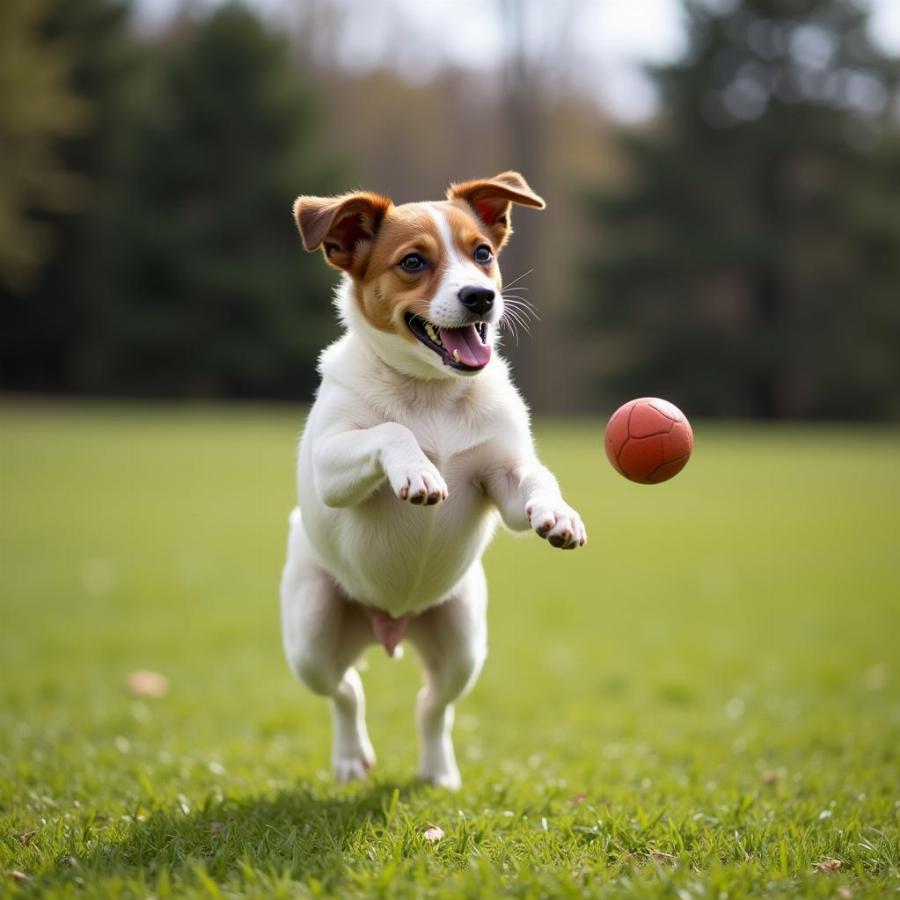It is not the size of the dog that matters, but whether the dog fits your lifestyle and living situation. A tiny Chihuahua can be just as demanding as a Great Dane, and a large Mastiff can be a gentle giant in a small apartment. Choosing a dog breed should be a well-thought-out process, focusing on compatibility rather than simply aesthetics. So, if you’re wondering which dog breed is the right fit for you, consider factors beyond size, including temperament, energy level, grooming needs, and training requirements.
Temperament and Energy Levels: Finding Your Perfect Match
When choosing a dog, temperament is crucial. Do you prefer a cuddly couch potato or an energetic hiking companion? Some breeds are naturally more laid-back, like the Cavalier King Charles Spaniel, while others, like Border Collies, thrive on constant activity. Matching your dog’s energy level to your lifestyle will ensure a happy and harmonious relationship. A high-energy dog in a small apartment with limited exercise opportunities can lead to frustration for both you and your furry friend. Conversely, a low-energy dog paired with an active owner might not get the mental and physical stimulation they need.
 Small dog playing with high energy
Small dog playing with high energy
Grooming Requirements: From Low-Maintenance to High-Fashion
Consider your willingness and ability to commit to grooming. Some breeds require minimal grooming, like the Beagle, while others, such as the Afghan Hound, need extensive brushing and regular professional grooming. Factor in the time and cost associated with grooming before bringing a new dog home. Are you prepared for daily brushing sessions? Can you accommodate regular trips to the groomer? It’s not the size of the dog that dictates grooming needs, but the breed’s coat type and length. A small, long-haired dog can often require more grooming than a large, short-haired one.
Training Considerations: Ease of Training and Breed Specific Traits
Some breeds are known for their eagerness to please and trainability, like the Golden Retriever, while others, like the Siberian Husky, can be more independent and challenging to train. Consider your experience level with dog training and choose a breed that aligns with your skills. Regardless of size, all dogs benefit from basic obedience training. A well-trained dog is a safer and happier dog, and it strengthens the bond between you and your furry companion. Remember, training a dog requires patience, consistency, and positive reinforcement.
Living Situation: Space and Lifestyle Considerations
While it’s not the size of the dog that’s the sole determining factor, your living situation plays a significant role in breed selection. Do you live in a small apartment or a house with a large yard? Do you have children or other pets? These factors influence which breeds are suitable for your home. A large, active dog might not be the best choice for a small apartment, while a small, delicate dog might not be ideal for a home with young children. A dog cage for suv is great if you travel a lot with your dog.
Is a small dog right for me?
Small dogs can be a great fit for apartment living or homes with limited space. However, don’t let their size fool you, they can be just as energetic and demanding as larger breeds.
Is a large dog a good choice for a first-time owner?
Large dogs can be wonderful companions, but they come with added responsibilities. First-time owners should carefully consider the breed’s temperament, training requirements, and exercise needs.
What if I have allergies?
Some breeds are considered hypoallergenic, meaning they produce less dander, which is the primary allergen for many people. However, no dog is completely allergy-free.
Conclusion: Finding Your Furry Soulmate
Choosing a dog is a significant decision. It is not the size of the dog that defines compatibility, but rather a combination of factors, including temperament, energy levels, grooming needs, training requirements, and your living situation. By carefully considering these factors, you can find a furry friend who will bring years of joy and companionship to your life. Remember, a well-matched dog is a happy dog, and a happy dog makes for a happy owner. So, take the time to research and choose wisely – your perfect canine companion is out there!
FAQ:
- What are some good dog breeds for apartment living? Consider breeds like the French Bulldog, Cavalier King Charles Spaniel, or Greyhound.
- What are some low-maintenance dog breeds? Beagles, Labradors, and Greyhounds are generally considered low-maintenance.
- What are some good dog breeds for families with children? Golden Retrievers, Labradors, and Beagles are popular choices for families.
- How can I find a reputable breeder? Research breed-specific rescue organizations and ask your veterinarian for recommendations.
- What are the costs associated with owning a dog? Factor in food, vet care, grooming, training, and other supplies like a high chair for dogs.
- What should I consider when adopting a senior dog? Senior dogs often require specialized diets like senior dog food recipes and may have pre-existing health conditions.
- How can I prepare my home for a new dog? Puppy-proof your home, purchase essential supplies, and research dog in bicycle trailer if you enjoy cycling.
Further Reading:
- Choosing the Right Dog Food for Your Breed
- Understanding Dog Body Language
- Basic Obedience Training for Puppies
Beaut Dogs is your trusted source for comprehensive information on all aspects of dog ownership, from breed selection to expert care advice. We are passionate about providing valuable resources to help you and your canine companion thrive. When you need support, please contact us by Email: [email protected] so that Beaut Dogs can give you detailed and accurate answers. Visit https://beautdogs.com today to discover the wonderful world of dogs and learn how to care for them best!